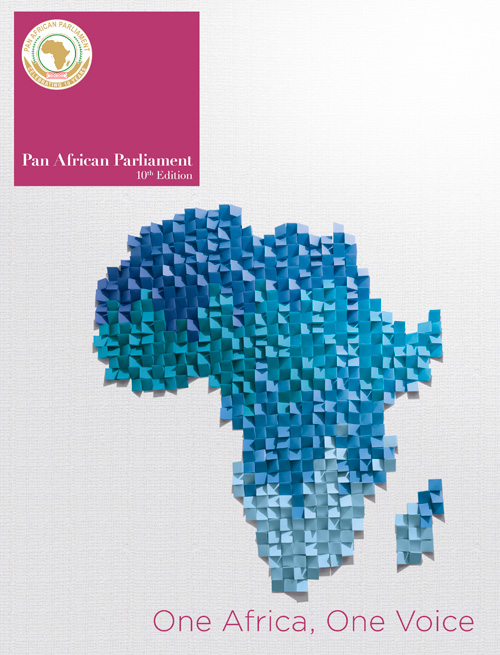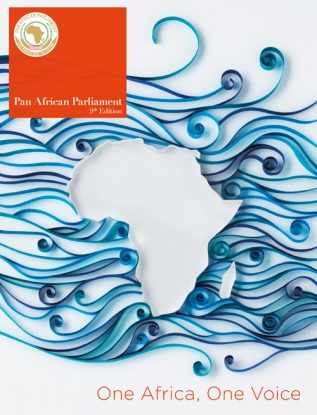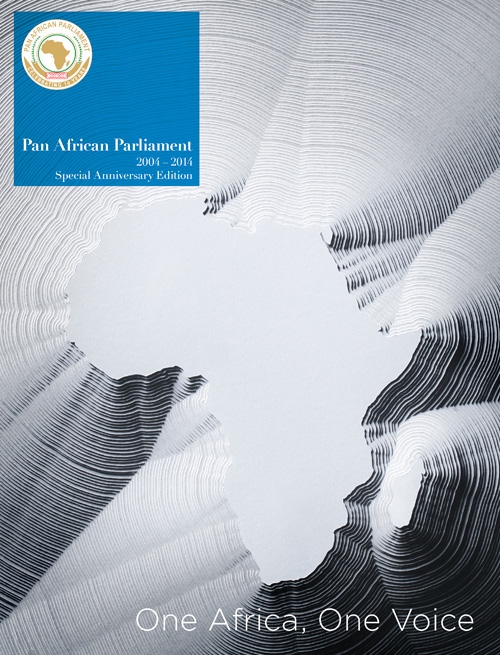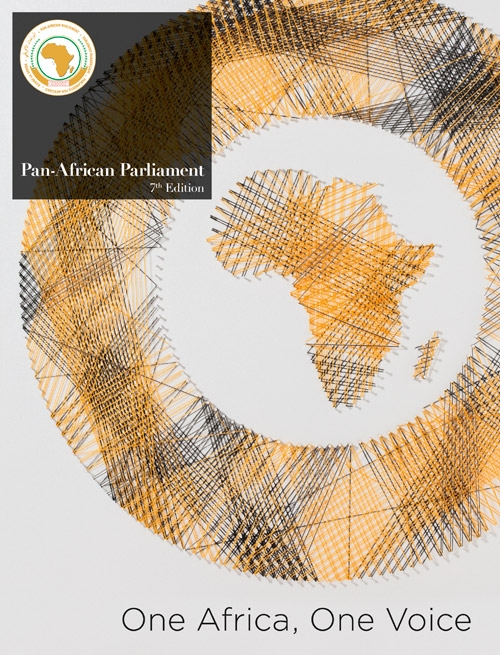
2010 SESSION
Following the Second Ordinary Session of the Second Parliament until 6 October 2010, the Committee on Co-operation, International Relations and Conflict Resolution met on two occasions. The first was for its statutory sitting from 5–6 August 2010 and the second from 30 September–1 October 2010, when members of the Committee participated in the Regional Meeting of Parliamentarians of State Parties to the Chemical Weapons Convention (CWC).
During the statutory session, the Hon Khumalo Marwick was elected as the new Chairperson of the Permanent Committee, narrowly beating the Hon Mohamed Abdoulkader Mohamed.
The Committee then rejected a report prepared by the Africa Institute of South Africa on peace and security in the continent. The report was rejected for two reasons: first, it was not translated into all the working languages of the PAP; second, the report was very theoretical and did not highlight the salient points about the empirical situation of peace and security on the continent. A sub-committee consisting of one member per region was then established to draw up a synoptic report on the current peace and security situation in Africa.
Each organ could play its part in the total elimination of chemical weapons on the African continent
On 30 September 2010, Members of the Committee attended the CWC meeting. It was a collaborative meeting arranged by the Organisation for the Prohibition of Chemical Weapons (OPCW) with the PAP.
The objective was to present an overview of the prohibition of chemical weapons convention so that each organ (at continental, regional or national level) could play its part in the total elimination of chemical weapons on the African continent.
The Committee’s findings at this meeting include:
- A deep concern for the persistence of violent conflicts in Africa.
- An awareness that conflict in Africa is caused by unconstitutional changes of government, border disputes, colonisation, bad governance, socio-economic exclusion and violations of human rights.
- Concern with the lack of progress made with regard to the functionality of the Continental Early Warning System, which allows timely intervention to prevent the escalation of conflict.
To conclude, the committee recommended that:
- The AU operationalise the African Standby Force, the African Conflict Resolution Facility and the Continental Early Warning System.
- All member states sign, ratify and implement the African Charter on Democracy, Elections and Governance and that the AU should work towards the complete decolonisation of the continent.
The Committee also highlighted their deep concerns for the situations in specific countries, in particular the collapse of the rule of law in Somalia and the decolonisation of the Saharawi Arab Democratic Republic.
However, the Committee was able to commend the positive developments of the peace strategy in Darfur. At the same time, it also paid tribute to Sudan’s Comprehensive Peace Agreement.
2011–2012 SESSION
At the First Ordinary Session of the Third Parliament of the PAP, the Permanent Committee on Co-operation, International Relations and Conflict Resolution presented their report on the State of Peace and Security in Africa.
The report centres around three regions – the DRC and Rwanda; Somalia; and Guinea. Fact-finding missions could not be carried out to these conflict areas and the Committee turned to its technical partners, the Institute for Security Studies, for assistance with these countries.
Democratic Republic of the Congo
To make sense of the DRC’s relapse into crisis, two key issues should be considered: the irregularities in the electoral process and failed security sector reforms.
The flawed 2011 presidential and legislative elections were a major setback for the DRC and had a detrimental effect on the country’s stability. The election was challenged by opposition forces, and external observation teams such as the Carter Centre and the EU also raised concerns about the process. Yet the DRC’s Supreme Court validated President Laurent Kabila’s election, sparking a political crisis.
In the security sector, attempts to form an integrated national Congolese army in 2003 were unsuccessful. Former Congrès national pour la défense du peuple (CNDP) troops defected from the Forces Armées de la République Démocratique du Congo (FARDC) to form a group called M23. The M23 has since formed a de facto government, challenging the authority in Kinshasa. Its leaders have called for the resignation of President Kabila while threatening to seize the city of Goma.
An addendum to the UN Group of Experts report, released on 27 June 2012, suggested that Rwanda was backing the M23 and was deliberately frustrating Kinshasa’s efforts to quell the rebellion. Conflict could possibly spill over into Rwanda.
On top of straining regional relations, the M23 rebellion had exacerbated the already fragile security situation in the eastern DRC. The M23 has been accused of committing war crimes, including forced recruitment, rape and executions.
Somalia
Somalia’s transition came to an end in September 2012, following the swearing-in of Hassan Sheikh Mohamud as president. Somalia had seen remarkable progress in security, constitution-making, political outreach and good governance. The run-up to the end of the transition saw the progressive extension of security beyond Mogadishu and battle successes by the AU Mission in Somalia and its allied forces.
Visible achievements of the transition were the nomination and swearing in members of the new Somali parliament. The election of the speaker, his two deputies and the president were also success stories. For the first time in more than 20 years the parliament of Somalia was chosen locally. Previous transitional parliaments were chosen abroad with sittings outside of the country.
Despite the successful transition, challenges remain. Somalia’s Al-Qaeda-linked militant group, Al Shabaab, has rejected the process and attempted to assassinate the president. The group also assassinated a member of parliament and stated their intention to continue with these attacks. The number of journalists killed in the country has also been on the increase.
Guinea
The election of opposition leader Alpha Condé in 2010 was a chance to foster democracy and signal a break from six decades of political instability, malgovernance and deterioration of the living conditions of citizens.
Condé won the election, despite receiving 20% of the vote in the first round, by forming a ‘rainbow coalition’ – bringing together 16 leaders and close to 90 small parties – to help him win the run-off. By 2012, this coalition began to fall apart.
One of the key factors fuelling tensions in Guinea appears to be the government’s reluctance to hold legislative elections. Without a duly elected and functioning National Assembly, political problems and tensions could escalate. Even if elections are eventually held, there is a significant risk that the National Assembly would suffer from political gridlock.
President Condé faces serious challenges to his authority. He is discredited due to numerous controversial decrees and the perceived constant harassment of the opposition leaders and accusations of ethnocentrism.
While allegations of corruption are common, there is also the high youth unemployment and persistent, overwhelming poverty that threaten the fragile peace and stability in Guinea. Finally, the army remains a genuine threat for democratisation in the country.
The government is concerned that international partners might abandon Guinea before the Security Sector Reform is complete.







